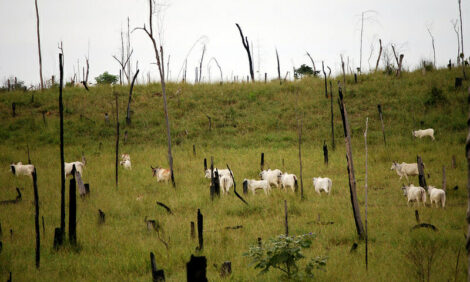



Latest Bluetongue Reports: More French Cases, Brazil Finds Zoo Outbreak
GLOBAL - In the last few weeks, various countries around the world have reported bluetongue outbreaks.Turkey has not reported any new outbreaks recently, but authorities have been busy vaccinating vulnerable animals in response to previous outbreaks.
Most recently in Kutahya province, 5600 sheep were vaccinated. Disinfection, quarantine and movement controls have all been enacted in addition to the vaccination programme.
In France, nine new outbreaks in cattle have been reported in 2016 so far.
Four of these were reported in Allier, one in Cantal, one in Lozère, one in Yonne, one in Puy-de-Dôme, and one in Isère.
The outbreaks in France have been caused by serotype eight of the bluetongue virus, whereas the agricultural outbreaks in other countries have been caused by serotype four.
France's cases were mostly identified through analytical surveillance rather than through clinical suspicion. The country is also using vaccination, movement controls and zoning to control the disease.
In Montenegro, three new outbreaks of bluetongue in cattle on backyard holdings have been reported. The outbreaks were discovered in Podgorica and Herceg Novi provinces, and resulted in two out of the seven animals infected to be destroyed.
Montenegro is not using vaccination in its disease control efforts, but quarantines, disinfection, zoning and movement controls are all being used.
Croatia has reported one outbreak of bluetongue on a cattle farm in Osijecko-Baranjska province. One infection was detected in a herd of 37 animals.
Finally, in Brazil, an outbreak of several serotypes of bluetongue was reported in a zoo.
From March to June 2015, four pygmy brocket deer (Mazama nana) in the zoo in an ecological reserve of the company Itaipú Binacional showed clinical signs and death.
As part of a research project on diseases in cervids in the ecological reserve, samples were sent to the Research Laboratory on Animal Virology of the Federal University of Minas Gerais and tested negative for epizootic haemorrhagic disease virus and positive for bluetongue virus.
The samples were tested by viral isolation and typing and serotype 3 of bluetongue virus was identified in one animal, serotype 18 in another and serotype 14 in another.
TheCattleSite News Desk


